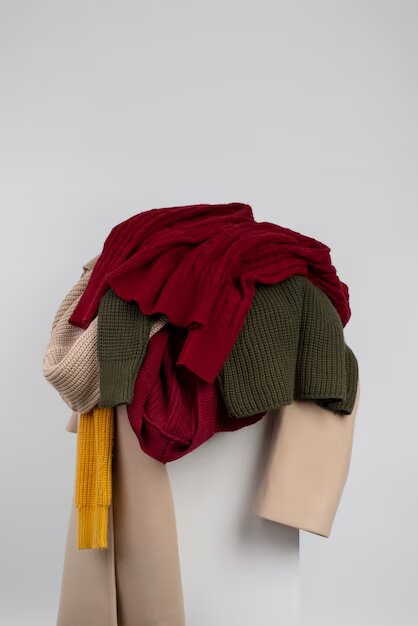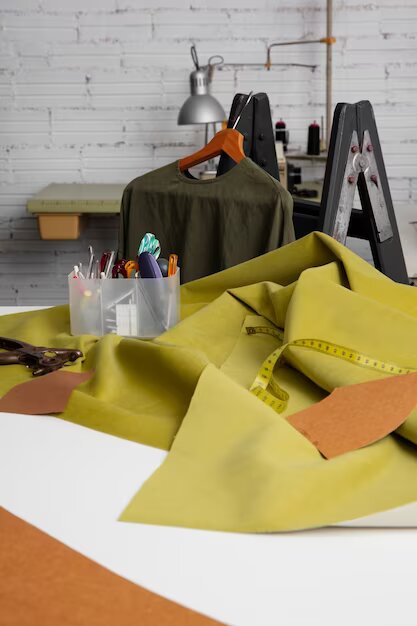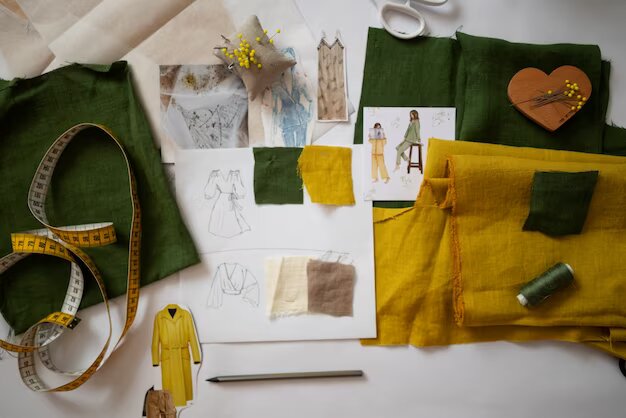Sustainable Textile Trends: What's Hot in the Fashion Industry

Organic Fabrics
The fashion industry has long been associated with trends and fast-paced consumerism. However, in recent years, there has been a significant shift towards sustainability. As people become more aware of the environmental and social impacts of their choices, there is a growing demand for eco-friendly and ethical fashion options. In this article, we will explore the sustainable textile trends that are currently making waves in the fashion industry.
Organic fabrics are a key component of sustainable fashion. These fabrics are made from materials that have been grown without the use of harmful pesticides or synthetic fertilizers. They offer numerous benefits for both the environment and the people involved in the production process. Some popular organic fabrics in the fashion industry include organic cotton, hemp, and linen. Brands such as XYZ and ABC have embraced organic fabrics in their collections, prioritizing sustainability without compromising style.
Recycled Materials

Recycled materials are gaining traction in the textile industry as a sustainable alternative to traditional manufacturing methods. These materials are made from post-consumer waste, such as plastic bottles or discarded garments, which are processed and transformed into new textiles.
The use of recycled materials in fashion not only reduces the demand for virgin resources but also minimizes waste and pollution. Innovative brands are finding creative ways to incorporate recycled materials into their designs, whether it’s creating garments from upcycled fabrics or using recycled polyester in activewear.
Plant-Based Fibers

Plant-based fibers offer a sustainable alternative to conventional textiles. These fibers are derived from renewable plant sources, such as bamboo, eucalyptus, and pineapple leaves. They are known for their eco-friendly properties, including biodegradability and low water and pesticide requirements.
Plant-based fibers like Tencel and Piñatex are gaining popularity in the fashion industry due to their sustainable qualities. Forward-thinking brands are leading the way by utilizing these fibers in their products, offering consumers stylish and sustainable options.
Biodegradable Textiles

Biodegradable textiles are designed to break down naturally and decompose without leaving harmful residues in the environment. These fabrics are typically made from natural materials such as organic cotton, hemp, or silk. Biodegradable textiles offer a significant advantage over synthetic materials that take hundreds of years to degrade.
Some fashion brands have started incorporating biodegradable fabrics into their collections, contributing to a more sustainable fashion industry. For instance, XYZ brand has introduced biodegradable T-shirts made from organic cotton, ensuring that even at the end of their lifecycle, the garments have a minimal impact on the planet.
Slow Fashion

Slow fashion is a movement that emphasizes quality over quantity and encourages mindful consumption. It promotes the idea of buying fewer, higher-quality garments that are ethically produced and made to last.
Slow fashion stands in contrast to fast fashion, which is characterized by rapid production, low-quality garments, and exploitative labor practices.
The principles of slow fashion align with sustainable textile trends, as it emphasizes the importance of conscious consumption, reducing waste, and supporting fair trade. Fashion brands are implementing slow fashion practices by adopting sustainable production methods, transparent supply chains, and offering timeless designs that stand the test of time.
Technology and Innovation

Technology plays a vital role in driving sustainable textile trends. Advancements in textile production and manufacturing processes are enabling the fashion industry to reduce its environmental footprint. From innovative dyeing techniques that use less water and chemicals to 3D printing of garments, technology is revolutionizing sustainability in fashion.
Collaborations between fashion and technology companies are paving the way for cutting-edge solutions that combine style and sustainability. For example, XYZ brand partnered with a technology firm to develop a process for transforming food waste into textile fibers, demonstrating the potential of technology to create sustainable materials.
Ethical and Fair Trade Practices

Ethical and fair trade practices are fundamental to sustainable fashion. They ensure that workers involved in the production process are treated fairly and that their rights and well-being are protected. Standards and certifications, such as Fair Trade and GOTS (Global Organic Textile Standard), play a crucial role in ensuring ethical production. Brands that prioritize fair trade principles in their supply chains contribute to a more sustainable fashion industry. XYZ brand, for example, partners with fair trade cooperatives and ensures fair wages and safe working conditions for its employees.
Technology and innovation are driving the development of new sustainable materials and production methods. Ethical and fair trade practices ensure the well-being of workers involved in the fashion supply chain. Consumer awareness and education play a vital role in creating a more sustainable fashion ecosystem.
By supporting sustainable fashion choices, individuals can contribute to a greener and more ethical fashion industry. It’s time to embrace these hot sustainable textile trends and make a positive impact on the world through our fashion choices.
